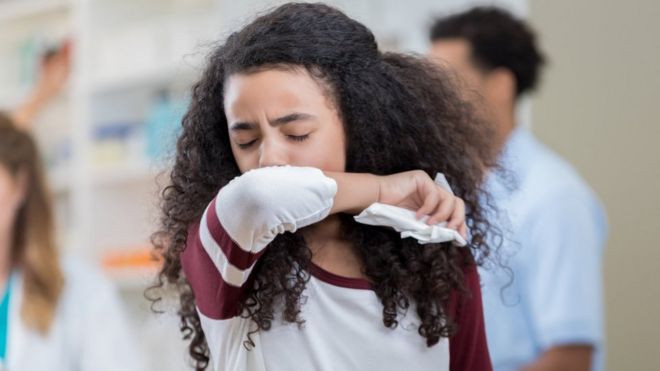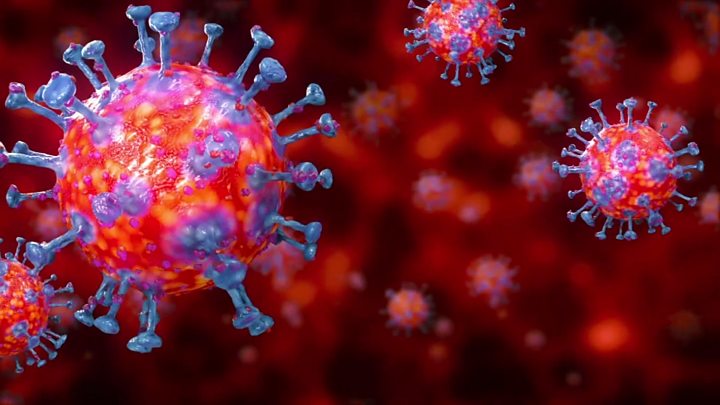 Image copyright
Image copyright
GETTY IMAGES
The coronavirus emerged in only December last year, but already the world is dealing with a pandemic of the virus and the disease it causes - Covid-19.
For most, the disease is mild, but some people die.
So how is the virus attacking the body, why are some people being killed and how is it treated?
Incubation period
This is when the virus is establishing itself.
Viruses work by getting inside the cells your body is made of and then hijacking them.
The coronavirus, officially called Sars-CoV-2, can invade your body when you breathe it in (after someone coughs nearby) or you touch a contaminated surface and then your face.
It first infects the cells lining your throat, airways and lungs and turns them into "coronavirus factories" that spew out huge numbers of new viruses that go on to infect yet more cells.
At this early stage, you will not be sick and some people may never develop symptoms.
The incubation period, the time between infection and first symptoms appearing, varies widely, but is five days on average.

Everything you need to know about the coronavirus – explained in one minute by the BBC's Laura Foster
Exit player
Media caption
Everything you need to know about the coronavirus – explained in one minute by the BBC's Laura Foster
Mild disease
This is all most people will experience. Covid-19 is a mild infection for eight out of 10 people who get it and the core symptoms are a fever and a cough. Body aches, sore throat and a headache are all possible, but not guaranteed. The fever, and generally feeling grotty, is a result of your immune system responding to the infection. It has recognised the virus as a hostile invader and signals to the rest of the body something is wrong by releasing chemicals called cytokines. These rally the immune system, but also cause the body aches, pain and fever. The coronavirus cough is initially a dry one (you're not bringing stuff up) and this is probably down to irritation of cells as they become infected by the virus. Some people will eventually start coughing up sputum - a thick mucus containing dead lung cells killed by the virus. These symptoms are treated with bed rest, plenty of fluids and paracetamol. You won't need specialist hospital care. This stage lasts about a week - at which point most recover because their immune system has fought off the virus. However, some will develop a more serious form of Covid-19. This is the best we understand at the moment about this stage, however, there are studies emerging that suggest the disease can cause more cold-like symptoms such as a runny nose too.
